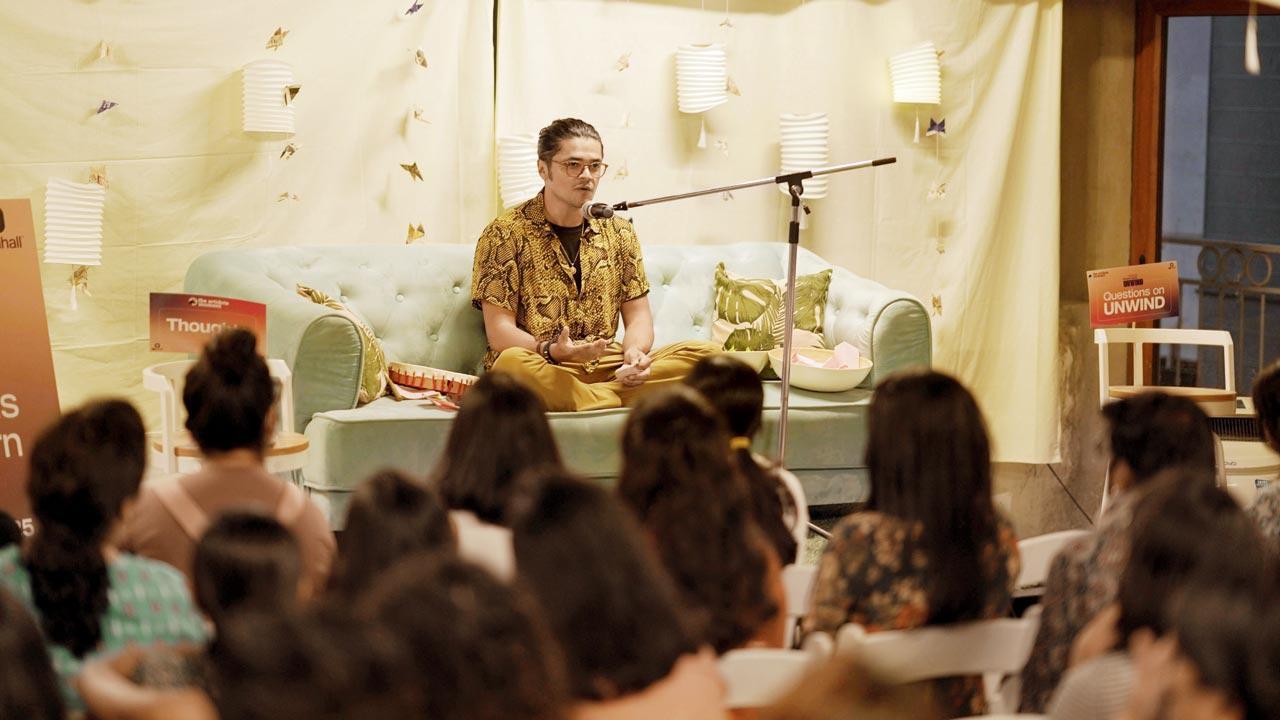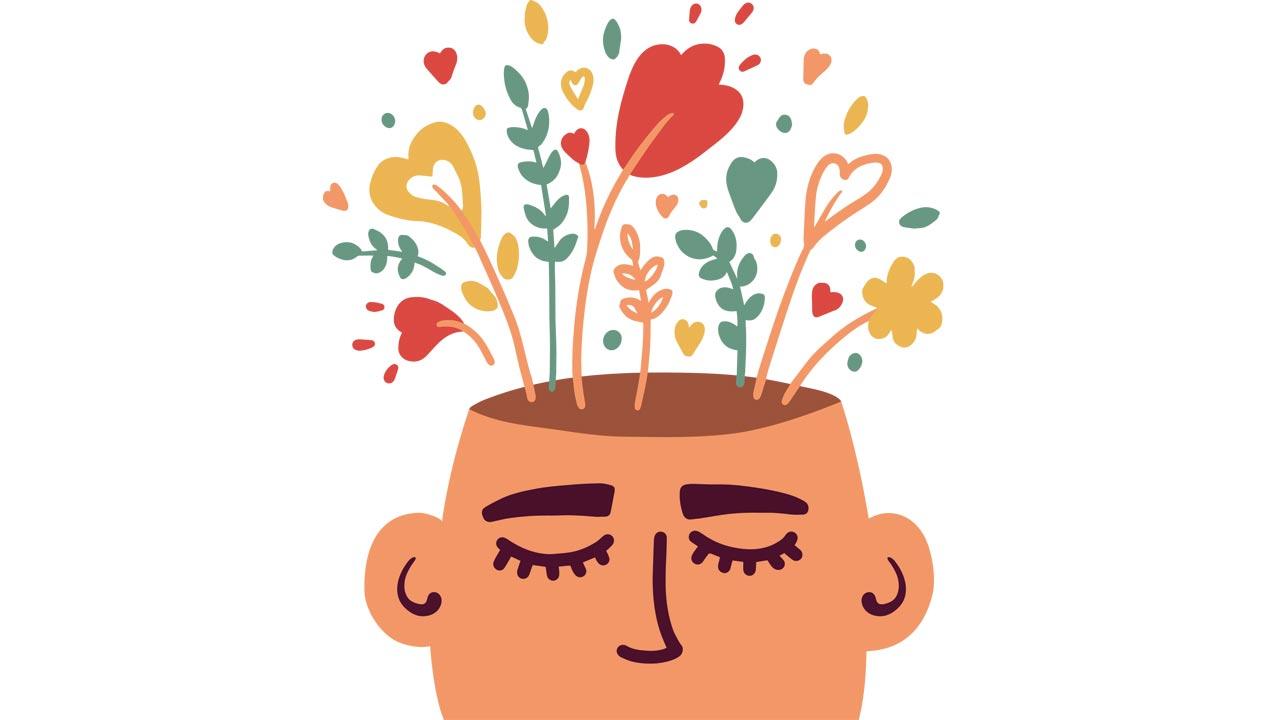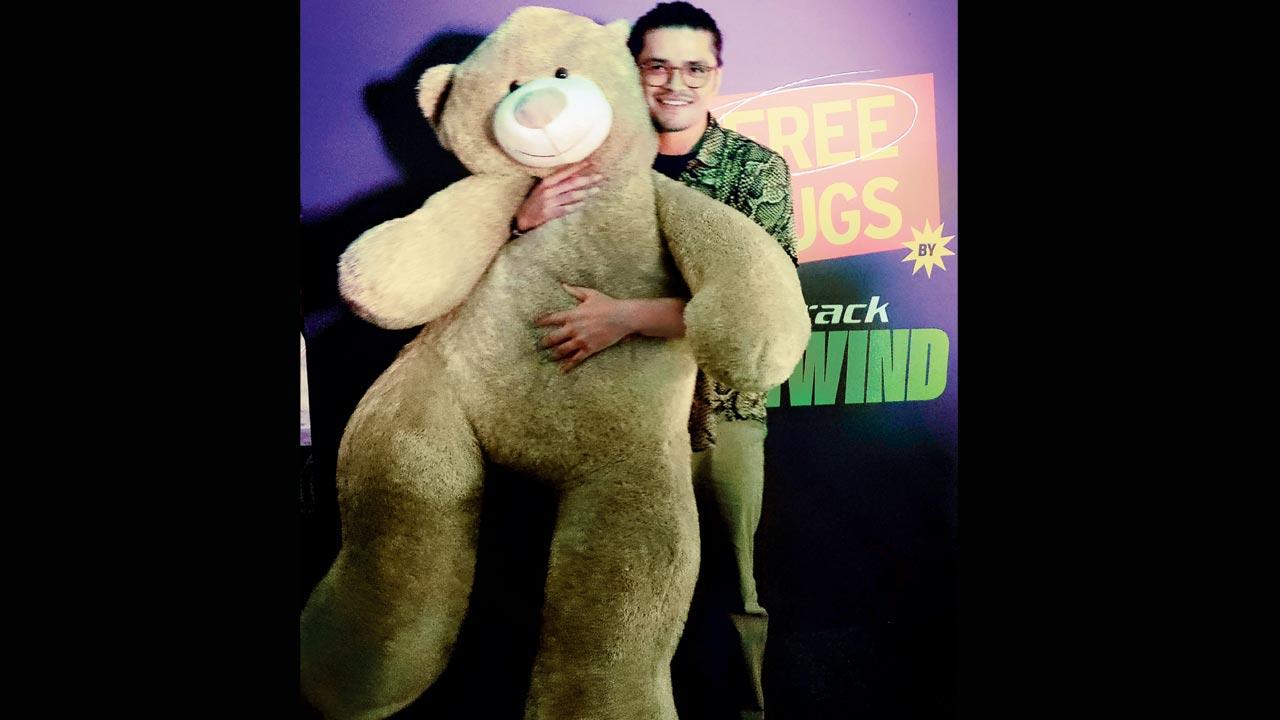The face behind the popular Instagram account, Artidote, is touring India. Sunday mid-day catches up with him before his show in Mumbai this weekend

Jovanny Ferreyra runs Artidote on Instagram, a platform on healing through art
Born in 2015, the Instagram handle Artidote has become a safe place to express pain, explore mental health and heal through art. Each illustration is accompanied by words or verse to untangle, validate or just witness the turbulence of inner life: Heartbreak, self-criticism, crushingly low self-worth contributed by a follower. And the followers are a legion of over one million. Its Mexico-born founder, Jovanny Ferreyra (Jova, he insists) is in Bengaluru currently, a city he calls his second home, for his Artidote India 2022 Tour in partnership with Paytm Insider and Fastrack. The initiative, Unwind, focuses on making mental health resources easily available to the youth and providing access to free therapy. The 34-year-old, who will cover Mumbai over the weekend, took out the time for an interview with Sunday mid-day.
ADVERTISEMENT
Edited excerpts from the interview.
How did your journey begin?
Artidote began at my rock bottom, in the depths of my depression. This just proves that some of the best things come out of life’s worst moments. In 2014, I didn’t have the energy to get off my couch, or think positive thoughts. My job involved running a social media page for an arts magazine in Berlin, and I only had enough energy to scroll through social media.
One of the few things that made me feel something was art: Illustrations, poetry, encouraging messages. I felt the need to share and connect, and post artworks with quotes, hoping they would resonate with someone in the world. My messages were about hope, heartbreak, love, grief and loss.
To my surprise, there were so many people craving a deeper connection. Social media has that power; a mere Facebook post can change lives. When I started receiving contributions and encouraging messages, I realised I had the unique opportunity to cultivate a safe space that could make people want to live again.

How did you come up with the name ‘Artidote’?
It’s a simple connection between ‘antidote’ and ‘art’. Antidote being a substance that heals, and art being the thing that I love and touches me deeply. Even before I learned the English language, art was the main language. It was my way to express my innermost feelings when I lacked the language to do so. Throughout my teenage years, art was my safe space. It wasn’t until a few years ago that I realised I was using art to heal from bullying; to allow myself to feel safe in my own little world where I could invite others. Art became my antidote to challenges in everyday life. The only criteria to choosing which artworks to post on Instagram is that they should make me feel something.
You’ve said you’ve wanted to move to India and are actually at a wedding in Goa… Is that true?
I have friends here who are like family. It wouldn’t be fair if I didn’t drop in to say “Hi” while I’m here. February 2020 was the last time I was here. I was set on moving here to set up local chapters of Artidote. The first one was supposed to be in Bengaluru. The dream was to revolutionise the mental health space by setting up offline open spaces for the youth to talk about the things they think about the most, but talk about the least.
I was planning on settling here for a couple of years back in 2020. But now I feel that I am where I am supposed to be. I’ve shifted back to Mexico, my homeland. I am the happiest I have ever been.
 Jova conducted mental health sessions in Mumbai over the weekend
Jova conducted mental health sessions in Mumbai over the weekend
Mental health is stigmatised among the older generation in India. From your multiple visits here, is there something peculiar you’ve noticed?
Ever since the first trip, I have noticed that there is this huge gap in awareness here in India, one of the world’s youngest countries. Two decades into this new century, half of the population has grown up with the internet and is open to global ideas, perspectives and concepts, but is being brought up by a generation that wasn’t exposed to all of this. There’s a huge gap between being aware of the topics that plague the youth and understanding those topics.
You first toured India in 2018. What difference have you noticed, in terms of mental health, from then to now?
The side-effects and ramifications of the pandemic are still felt by many people. I have seen changes; some for the better and some not.
The better changes are that people are sensitised to growth. It’s as if the very real possibility of death creates this urge to live, expand our wings and make the most out of our lives. The not-so-positive is the slight variations in our triggers. People are prone to be easily triggered, emotionally. Many people are still recovering [from the aftershocks of the pandemic]; while many have already recovered and risen higher.
Discourse on mental health during the pandemic was at its peak. As a mental health platform creator, how did you feel?
It was overwhelming. I struggled with my responsibility as a caregiver and as a holder of a safe space, both online and offline. As the world went into lockdown in March, I went into emergency mode, and made a list of the people I wanted to be there for—my inner circle. But I forgot my own wellness. After 48 hours of making sure everybody was okay, I’d collapsed on the bed with a fever.
That’s when I realised that the most I could do at that time was to double down on taking care of myself. To be there for myself. It was an awakening for me. I was preaching that self-care is not selfish. There is a difference between being selfish and taking care of myself.
But I had to learn it the hard way myself.
You were also part of Deepika Padukone’s care package on Clubhouse in 2021. How was that?
It was an honour, professionally and personally. I come from a very small village in Mexico with a population of 2,000. The children there don’t dream this big. I somehow was able to find myself in beautiful places and around beautiful people.
 Subscribe today by clicking the link and stay updated with the latest news!" Click here!
Subscribe today by clicking the link and stay updated with the latest news!" Click here!







